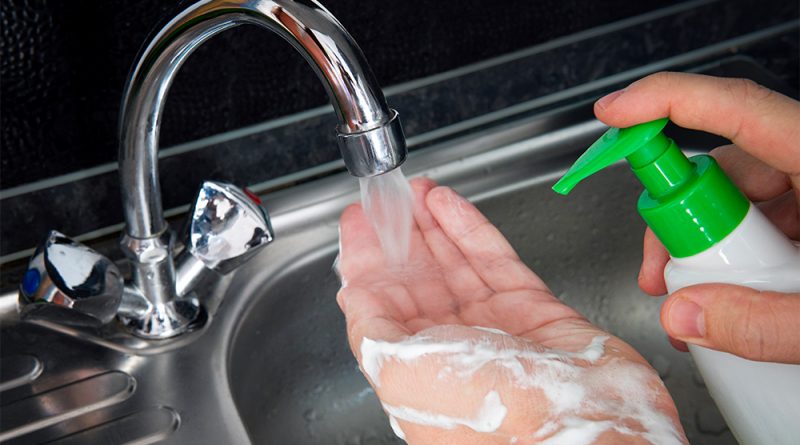Do you really need antibacterial soaps in 2022?
Antibacterial products, almost always, tend to claim that they have the ability to kill 99.9% of germs. How true is it? How does an antibacterial soap function? What are the advantages? Should you keep using a simple, regular soap?
We will make an attempt to answer these questions today.
To begin with, let us discuss the contents of a soap. All soaps contain certain chemicals, irrespective of whether it is a body soap, a normal liquid soap or an antibacterial soap. Every soap will contain either alcohol or chlorine. Both these ingredients can kill bacteria. Even a few years ago, they used to contain triclocarban and triclosan. But ever since the FDA declared the lack of scientific proof to show how triclosan is safe to use, it has been banned as an ingredient for antibacterial soaps. So no antibacterial soap contains triclosan now.
How do you know if your soap is antibacterial?
Determining whether a bar of soap is antibacterial is as simple as looking at the label on the product. Even the list of ingredients can prove useful. As mentioned earlier, before 2016, soaps contained triclocarban and triclosan. Triclosan is an antifungal as well as an antibacterial ingredient.
But ever since the FDA declared the lack of scientific proof to show how triclosan is safe to use, it has been banned as an ingredient for antibacterial soaps.
Animals have been used to run tests for triclosan. It showed that triclosan had an effect on the function of a few hormones in animals and hence, the effect of triclosan on human beings could not be ensured.
What makes any soap an antibacterial soap?
Antiseptic and antimicrobial soaps are a few other names given to antibacterial soaps. The ingredients and chemicals that they contain are hardly ever found in plain, regular soaps.
These chemicals and ingredients are added to the soaps with an aim to not only reduce but also prevent the build-up of both germs, as well as bacterial infections in every way possible.
What are some effective & common anti-bacterial ingredients to look for?
To begin with, be on the lookout for a few common essential oils. Most of these oils have the ability to kill bacteria, for example, tea tree oil. You can also look out for ingredients like cloves, ginger, honey, garlic, oregano, Echinacea alongside other natural ingredients.
How do antibacterial soaps prevent germs?
Normal soaps also have the ability to kill germs but antibacterial soaps contain certain extra ingredients that prove more effective against germs and bacteria. Moreover, antibacterial soaps keep your hands clean and safe for a longer period of time. We must keep in mind that bacteria can reappear quite fast if there is no protection available.
All antibacterial soaps can provide these functions. The main ‘antibacterial’ ingredients used in the soaps stay on the skin for a long time, thereby preventing quick build-up of bacteria & other germs.
Here are some situations where you should use an antibacterial soap:
- If you happen to be in close physical proximity with people who are vulnerable to infections like elderly people living in retirement facilities.
- If you happen to be in close physical proximity with patients who have suppressed immunity.
- People who happen to be in close physical proximity with those infected with diseases and illnesses that can be easily transmitted by either direct or indirect contact, including diarrhoea or even skin infections alongside upper respiratory infections (usually at medical facilities).
- If you happen to be in an environment where disease transmission is most likely to happen for example in childcare centers, food preparation centers, chronic-care residences and prisons.
- Common public areas, like supermart trolleys, elevator buttons, escalators, turnstiles in underground metros/subways, doorknobs in offices, public toilets etc.
Is antibacterial soap enough & what more can you use alongside antibacterial soaps?
However much you think that only an antibacterial soap can protect you from germs bacteria, they will not be able to do so. You yourself will have to take an additional step.
To begin with, you can get an effective hand sanitiser for yourself. This will be able to nip all the problems at the bud.
Why is regular soap not enough?
Regular, plain soaps are created with an aim to decrease the surface tension of water as well as to lift all kinds of dirt and oils off skin and other surfaces. They do not, however, contain those chemicals that are antibacterial in nature. They can, by all means, do away with dirt, dust and many germs but they do not last as long as antibacterial soaps & don’t cover the entire ‘range’ of bacteria and germs.
In order to ensure that your regular soap kills more bacteria, you will have to wash your hands at lesser intervals and more thoroughly.
But then practically…. Who does this consistently?
The importance of handwashing
Let us focus on the importance of handwashing before we discuss how antibacterial soaps function. Imagine the number and the kinds of surfaces you touch every day with your hands.
From your computer’s keyboard to your mobile phone, your table, hardware and many other such surfaces. There is no way you can be absolutely sure that all these surfaces have no germs on them and are clean or safe to touch.
Hence, in the simplest of words, handwashing is necessary for the complete elimination of germs, dirt, dust or grime from our hands.
How often should you wash your hands?
Even if you buy the best antibacterial soap, it will not help you maintain cleanliness if you don’t adhere to practicing good hygiene. You must remember to always wash your hands after you have most likely come in contact with surfaces that might have bacteria on them in case of the following.
- Sneezing
- Handling food
- Using the toilet
- Looking after an unwell person
- Dealing with garbage
The proper way to wash your hands
Washing hands is undoubtedly a simple practice. But for many, it’s a rush job, a mere formality.
Here are a few steps that can guide you on how to wash your hands.
- Soak your hands first in running lukewarm water.
- Use the soap, rub your hands till thick lather is formed.
- Make sure you wash both sides of your hand, especially between the fingers and below the nails. Keep doing this for about 20-25 seconds.
- Rinse off the soap with lukewarm water.
- Dry your hands either with a towel or a dryer. Dispose of the paper towel if you used one.
We hope we were able to help you today with these insights. Stay safe!




